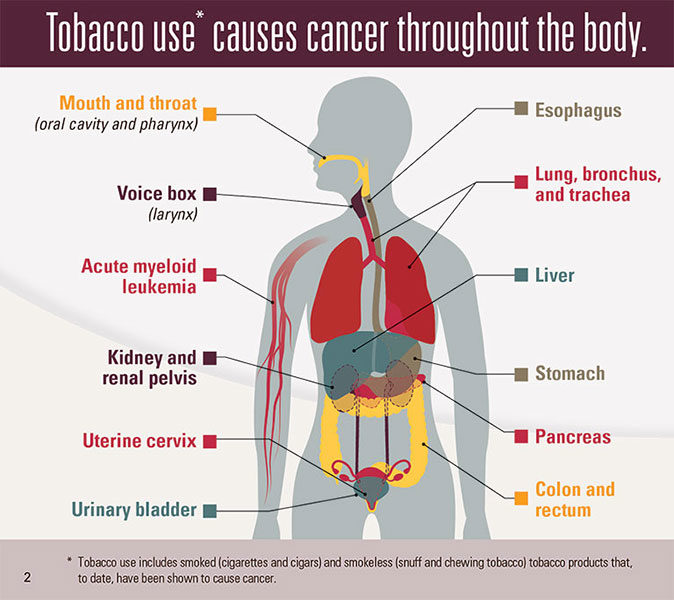CDC: Number of adult smokers drops but disparities remain

Photo: Centers for Disease Control and Prevention
Washington – The number of adults in the United States who smoke cigarettes fell below 40 million for the first time since modern recordkeeping began in 1965 – but not everyone has benefited from the trend. Tobacco use remains the leading cause of preventable disease and death in the country, according to two new reports from the Centers for Disease Control and Prevention.
Citing data from the 2015 National Health Interview Survey, one report, Current Cigarette Smoking Among Adults – United States, 2005-2015, states that the number of U.S. adults who smoke cigarettes dropped to 36.5 million in 2015 from 45.1 million in 2005 – a reduction of 19 percent.
Other highlights from the report:
- Smoking was more common among males (16.7 percent) than females (13.6 percent).
- Prevalence was highest among American Indian/Alaska natives (21.9 percent), non-Hispanic black men (20.9 percent) and gay/lesbian/bisexual adults (20.6 percent).
- The Midwest had the most smokers (18.7 percent).
The November issue of CDC’s monthly Vital Signs report focused on new cases and fatalities from cancers related to tobacco use.
Among the findings:
- About 3 in 10 cancer deaths are caused by cigarette smoking.
- Lung cancer remains the leading cancer killer of men and women.
- 660,000 people were diagnosed with, and 343,000 died from, tobacco-related cancers between 2009 and 2013.
- Quitting tobacco use at any age can cut the risk of contracting or dying from cancer.
“The smoking rate is almost a third of what it was in 1965,” American Lung Association National President and CEO Harold P. Wimmer said in a press release. “This is remarkable progress, and as a nation, we have seen some of the health benefits. However, as ‘Vital Signs’ reports, tobacco use still accounts for an unacceptably high number of cancer diagnoses and deaths each year, especially lung cancer, which accounts for more than 126,000 deaths each year.”
Post a comment to this article
Safety+Health welcomes comments that promote respectful dialogue. Please stay on topic. Comments that contain personal attacks, profanity or abusive language – or those aggressively promoting products or services – will be removed. We reserve the right to determine which comments violate our comment policy. (Anonymous comments are welcome; merely skip the “name” field in the comment box. An email address is required but will not be included with your comment.)

